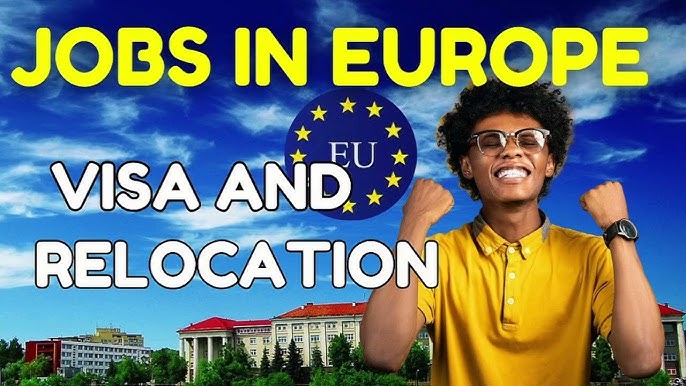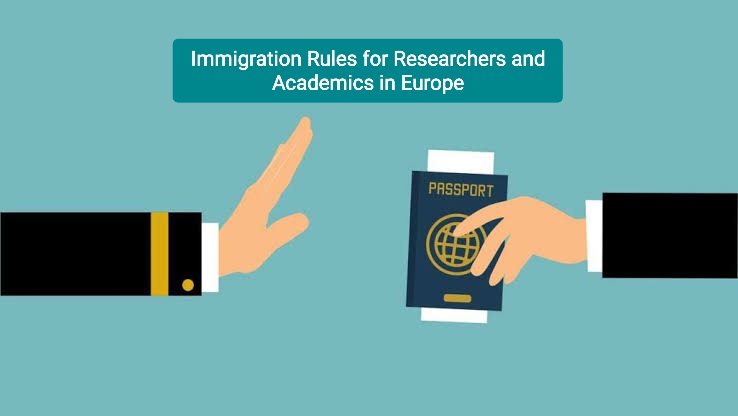Looking to start a business abroad? Many brilliant minds around the world like you have a burning passion to start innovative startups. However, they often face frustrating visa setbacks when trying to set up abroad.
Europe has tech-friendly policies, well-connected markets, and investor networks. This makes it to be fast becoming a top destination for startup founders. But here’s the truth— getting there legally and staying long enough to grow your business requires following the visa rules that can sometimes be confusing and time-consuming.
Thankfully, several European countries now offer special visa routes just for entrepreneurs and startup founders. These startup visa programs are designed to attract global talent by offering them a means to live, work and invest in the continent. Europe has a lot of options that suits the kind of work you do.
Let’s break it all down as we talk about what these visas are, who can apply, and which countries are offering the best startup-friendly routes this year.
An Overview of Startup Founders Visa
Startup founder visas are residence permits for non-EU citizens who want to set up and develop a business in a European state. Startup visas are different than traditional work permits or investment visas, because they are not just based on how much money you plan to invest, but focus on innovation, scalability and job creation.
Typically, these programs will give you a temporary residence permit (almost always for 1–2 years) that you can extend if your startup is successful. Some startup permits also eventually lead to a permanent residence or citizenship option. The best part is that most startup visas will provide you with access to local incubators, mentoring and in some cases even funding.
However, there is always a process. Most countries will want to see a viable business plan, evidencing your idea is innovative, and you may even have to provide letters of support from an incubator or angel investor. However, at the end of the day, startup visas represent a very real opportunity for you as a foreign founder to start your business, and get settled in a new part of the world.
Eligibility Requirements
Although each country will have its own set of requirements, there are a few common things you will likely have to qualify for if you are applying for a startup visa in Europe:
- A solid business plan that shows innovation and scalability
- Proof of enough money to support yourself (and possibly your co-founders or family)
- Sometimes a minimum investment or funding commitment
- An endorsement or acceptance into an approved incubator or accelerator program
- Clean criminal record and valid travel documents
Some countries also want you to register your company locally and be actively involved in running it from within their borders. Basically, they want to be sure you’re serious and not just using the visa as a backdoor to residency.
Top 10 Europe Startup Visa Programs
Let’s go through some of the best startup visa programs in Europe. These countries offer a mix of support, flexibility, and long-term opportunities that make them attractive to global founders.
French Tech Visa
France is becoming a hotspot for tech entrepreneurs. The French Tech Visa is part of a larger program to attract talent into the country. As a founder, you’ll need to be accepted into a French Tech incubator or accelerator and show you’ve got funding of at least €20,147. You can bring your spouse and kids too, and the process is fairly straightforward. What’s even better? You don’t need to speak French (though it helps).
Germany Startup Visa via Self-Employment
Germany doesn’t have a one-size-fits-all startup visa, but Berlin (and a few other states) offer pathways under the self-employment residence permit. You’ll need to prove that your business will fulfill an economic need in Germany and has backing either financially or via an incubator. Berlin is busy with startups, and you’ll find lots of support networks. Bonus: You can apply for permanent residency in just a few years.
Dutch Startup Visa
This one is super popular for early-stage founders. To get it, you need to collaborate with an official Dutch facilitator. This is usually an incubator or mentor. You also need a detailed step-by-step business plan and enough money to support yourself (about €1,500/month). The visa is valid for one year initially, but it can be extended if your business shows progress. The Dutch startup ecosystem is vibrant, especially in Amsterdam and Rotterdam.
Estonia Startup Visa
Estonia was one of the first to really go digital with government services, and they welcome startup founders with open arms. Their startup visa program is well-structured and open to non-EU founders with innovative ideas. You’ll need to get your business idea approved by the Startup Committee. The living cost is lower than in most of Western Europe, and the country is fully digital. Interestingly, you can even apply for e-residency.
Startup Visa in Portugal
Firth on our list is the Portuguese startup visa which is very founder-friendly. In order to qualify, your business idea must focus on innovation and tech. You’ll need to show that your startup has the potential to create jobs and generate a turnover of €325,000 or more after 5 years. Approval from a certified incubator is required. Lisbon and Porto are home to a fast-growing startup scene with great weather and lifestyle.
Spain Entrepreneurs Law Visa
Spain offers a startup visa under the Entrepreneurs Act. Whatever plausible project you have in mind, it has to be innovative and games an energetic contribution to the Spanish economy. Considerable amount of your application will be decided by the Ministry of Economy, so you should be prepared with a robust business plan.
The good news is that the process is centralized, relatively fast, and the visa allows family members to accompany you. The startup ecosystem is called, by many entrepreneurs, one of the best on the planet to start in Spain, especially if you go to Barcelona, as it has a dynamic environment and talent pool.
Italia Startup Visa
The Italia startup visa is prepared to attract Non-EU founders that have an innovative idea to start up in Italy. You can either directly apply, or go through a certified incubator, which can fast-track the process. When you apply you are required to have at least €50,000 investment and get the green light from the Startup Committee.
What is interesting is that you can set up your startup wherever you want, however, most people that start up are drawn towards the traditional startup ecosystem. You can choose between Rome or Milan, although the former can be a little chaotic, but the networks are much more rapidly developing across the entire country of Italy.
Start-up Entrepreneur Programme (STEP) in Ireland
Ireland’s visa program is aimed at high-potential startups. You’ll need to have €50,000 in funding (personal or investor-backed), and your idea must be scalable and innovative. The process is pretty strict, but Ireland has strong ties to the U.S. and a growing startup culture in Dublin. There’s also no requirement to speak Irish or Gaelic as English is the official language.
Startup Visa Lithuania
Lithuania is small but super digital and startup-friendly. They have a visa program for innovative startups that have potential on a global scale that is open without the need for an initial investment but you do need an idea that is approved by their Startup Committee. You will have to register your company in Lithuania, and provide evidence of personal savings needed for living expenses. The cost of living is low and in fact, there is a very good tech infrastructure.
Startup Denmark
Startup Denmark has a visa program for founders with scalable, innovative business ideas and residing outside the continent. But first, you will have to have your idea approved by a Startup Denmark expert panel. Once granted you will be able to apply for a residence permit and set up your company. The visa program also allows co-founders (they limit to 2 people per startup) and provides access to one of the highest quality and most sustainable living environments in Europe.
Final Thoughts
Starting a business in Europe isn’t just an idea but it is possible if you determine the right steps. The startup visa programs we discussed here are among the best ways to get into Europe. But as we said, a visa is just a starting point. The real journey of a startup begins when you arrive in your new country, meet founders like you, pitch your idea, and grind to build something real.
Irrespective of the country you choose, you aren’t just getting a visa; it means you have gained a path to build your dream business in one of the most innovative and supportive ecosystems on the planet. If you have an idea that won’t let you go, stop daydreaming and start applying. Europe is open for business but the question is, ‘are you ready?’




